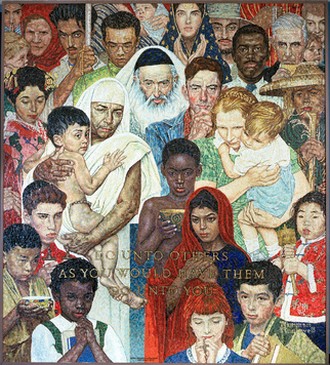
Number four of the five things that distance churches from the people they seek to reach: ignoring pluralism.
Mark Chaves, in his book American Religion, notes an important cultural trend: “Americans have become more accepting of religious diversity and more appreciative of religions other than their own.” This has two implications for congregations. First, berating another’s faith to bolster your own alienates people. And second, people expect that communities of faith should draw upon the breadth of spiritual resources available in the world.
This doesn’t mean that congregations must become “design your own faith” centers. But it does mean there must be an openness to engage how another’s beliefs and practices relate to the core of what our own tradition embodies. We no longer live in religious enclaves, and therefore a central part of faith formation is to help people be religious inter-religiously.
If you’re one of those who recognize the need but struggle with how this can be done (as many do!), we encourage you to explore Scriptural Reasoning. It provides a way for an interfaith group to read their sacred texts together, not to seek consensus but to create understanding and friendship.
Mark Chaves, in his book American Religion, notes an important cultural trend: “Americans have become more accepting of religious diversity and more appreciative of religions other than their own.” This has two implications for congregations. First, berating another’s faith to bolster your own alienates people. And second, people expect that communities of faith should draw upon the breadth of spiritual resources available in the world.
This doesn’t mean that congregations must become “design your own faith” centers. But it does mean there must be an openness to engage how another’s beliefs and practices relate to the core of what our own tradition embodies. We no longer live in religious enclaves, and therefore a central part of faith formation is to help people be religious inter-religiously.
If you’re one of those who recognize the need but struggle with how this can be done (as many do!), we encourage you to explore Scriptural Reasoning. It provides a way for an interfaith group to read their sacred texts together, not to seek consensus but to create understanding and friendship.
 RSS Feed
RSS Feed
